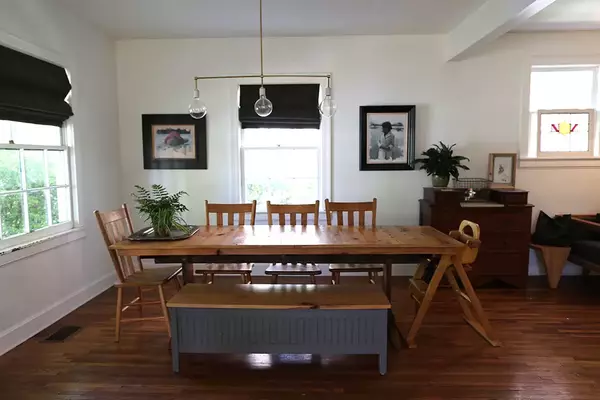
RELOCATING? CALL US TODAY TO HELP!
Relocation: Settling Down in Las Vegas and HendersonMoving to a new city can be an exciting adventure, but it also comes with its fair share of challenges. If you're considering relocating to the Las Vegas or Henderson areas, there are several factors to consider when it comes to buying a home and settling into a new neighborhood.For many buyers, the allure of Las Vegas lies in its vibrant entertainment scene, world-class dining, and endless recreational opportunities. Henderson, on the other hand, offers a more suburban feel with a focus on family-friendly neighborhoods and excellent schools. Both cities have their unique charm, and choosing the right one for your needs and preferences is crucial.Before you start browsing through available homes, it's vital to assess your budget and understand the expenses associated with buying a home in these areas. It's always a good idea to consult with a real estate agent who specializes in the Las Vegas and Henderson markets. They can provide valuable insights into current market conditions and help you navigate the process effectively.Once you've determined your budget, obtaining pre-approval for a mortgage should be your next step. This will give you a clear understanding of how much you can afford and allow you to make a strong offer when you find the perfect home. Additionally, being pre-approved demonstrates to sellers that you are a serious buyer and can expedite the closing process.As you begin your search, it's important to consider the type of home you're looking for. Many buyers in these areas are drawn to new construction properties. These homes often come with modern amenities, energy-efficient features, and the opportunity to customize certain aspects to fit your taste. The Las Vegas and Henderson markets have seen significant development in recent years, resulting in a wide array of new construction options to choose from.While finding the right home is crucial, it's equally important to find the right neighborhood. Las Vegas and Henderson offer various communities, each with its own unique character and amenities. Consider factors such as proximity to schools, parks, shopping centers, and commuting routes. Researching crime rates and community activities can also give you a better understanding of the neighborhood's overall vibe.Relocating to a new city is an exciting chapter in your life, but it can also be overwhelming. By planning ahead, understanding your budget, getting pre-approved, and carefully considering your options, you can ensure a smooth transition into your new Las Vegas or Henderson home. With the assistance of a knowledgeable real estate agent and a clear vision of your preferences, you'll soon find yourself enjoying all that these vibrant cities have to offer.

ARE YOU A FIRST TIME HOME BUYER?
As a first-time home buyer, you may find yourself with a lot of questions about the home buying process. One of the biggest concerns for many buyers is the downpayment. How much do you need to put down? Can you afford it? Here are some tips to help you navigate the process and make the best decision for you and your budget.First, let's talk about what you can afford. It's important to understand your finances and what you can comfortably pay each month. Meet with a lender or financial advisor to determine how much you can afford to pay for a house. They will take into account your income, debt, and credit score to give you an estimate of how much you can borrow.Once you know how much you can afford, you can start thinking about your downpayment. The standard downpayment for a home is 20% of the purchase price. However, there are other options available if you don't have that much saved up. FHA loans require a downpayment of only 3.5% of the purchase price, and some lenders offer conventional loans with downpayments as low as 5%.It's important to remember that a smaller downpayment may result in a higher monthly mortgage payment and potentially higher interest rates. You'll also have to pay private mortgage insurance (PMI) if you put down less than 20%. PMI protects the lender in case you default on the loan.To get qualified for a mortgage, you'll need to provide proof of income, employment history, credit score, and other financial information. You'll also need to provide documentation of your downpayment, whether it's from savings, a gift, or a downpayment assistance program.The home buying process can be overwhelming, especially for first-time buyers. It's important to do your research and work with professionals who can guide you through every step of the process. With careful planning and budgeting, you can find the home of your dreams and make it a reality.

GETTING READY FOR RETIREMENT
HOW TO GET READY FOR RETIREMENT For most people, retirement feels like a long way off. But, if you don’t start preparing as early as possible, you may find yourself in a place of financial insecurity when the time does come. To avoid this, consider implementing the following tips. Calculate your target savings. In general, it’s recommended that you save between 10 to 15 percent of your income for retirement. However, you can always use an online savings calculator to determine the amount you need to save for your specific needs and goals. Contribute to your employer’s retirement savings plan. Does your job offer a 401(k), traditional IRA, or Roth IRA? Sign up and start saving as soon as they allow you to. It’s recommended to set up automatic paycheck deductions and, once the money is in your retirement fund, don’t touch it. Take advantage of employee benefits. Many employers offer matching which generally requires you contribute a certain percentage of each paycheck and your company will then contribute a matching amount with funds of their own. They might also offer health savings or flexible savings account. By contributing to these accounts, you reduce your amount of taxable income, allowing you to save more money. Pay off your debts. Start by paying off any high-interest credit card debt first. Then look at other debts, such as student loans and car payments, and make a plan for paying those off incrementally. Reduce daily spending. Although this feels like a no-brainer, spending your money thoughtfully now can make a big impact later. Seek out areas of your life where you can



